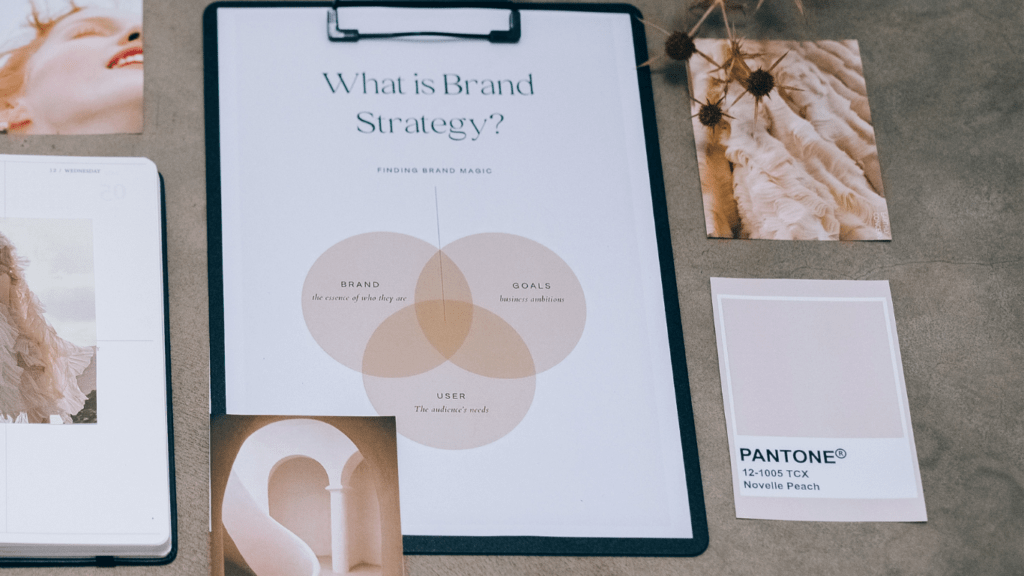Why Eco Brands Need a Fresh Marketing Approach
Traditional advertising is built for volume and polish two things that don’t always sit well with a sustainability first message. Overproduced TV spots, feel good slogans without facts, and scripted PR lines are red flags to eco conscious consumers who’ve learned to look past the hype. The result? A growing disconnect between ad campaigns and the values of the audiences they aim to attract.
Today’s green conscious buyer wants receipts. Proof of impact. Honest stories. They expect the brands they support to be open about sourcing, practices, and even the trade offs involved in staying sustainable. Anything less can feel like greenwashing.
That’s where influencer marketing steps in. Unlike traditional ads, influencer content feels like it’s coming from a friend not a boardroom. Creators who live the lifestyle, walk the talk, and share both wins and struggles are the bridge between values driven brands and the communities they’re trying to reach. With the right partnerships, influencer marketing becomes more than just exposure it’s about trust built through shared principles.
Finding the Right Influencers
When it comes to eco conscious marketing, bigger doesn’t mean better. The goal isn’t to grab the biggest audience it’s to reach the right one. Brands that chase follower counts without alignment usually end up wasting budget and credibility.
So what does alignment actually look like? It means partnering with influencers who live the values, not just post about them. “Eco” isn’t a badge it’s a throughline. You’ll see it in the way they consume, the brands they support, and how they talk about impact even when there’s no sponsorship involved.
Vetting for authenticity is non negotiable. Go beyond the grid and scan their past content. Look for consistency: is sustainability a core theme or an occasional shoutout? Are they walking the walk when the cameras aren’t rolling? Also check for brand resonance. Their tone, mission, and audience should mirror your own. Otherwise, the message won’t stick.
As highlighted in the guide from Green Commerce Haven, long term value comes from real partnerships, not short term boosts. The best matches aren’t just eco aligned they have skin in the game. Learn more in this deep dive.
Authentic Engagement > Broad Reach
When it comes to promoting eco conscious brands, success is less about the size of the audience and more about the depth of the connection. Consumers are increasingly skeptical of overly polished ads and influencer posts that feel transactional. For sustainable brands, authenticity isn’t a bonus it’s a requirement.
Storytelling That Resonates
Forget the billboard style pitches. Eco audiences respond better to stories than they do to sales tactics. Creators who share their actual experiences challenges and all create narratives that feel real and relatable.
Highlight real world use of a product in everyday life
Share behind the scenes moments or journeys toward sustainability
Focus on the human impact rather than glorified aesthetics
The Power of Micro Influencers
Micro influencers, those with smaller but dedicated followings, often have a deeper connection with their communities. These creators:
Are niche focused and mission driven
Tend to have higher engagement and trust levels
Can deliver more targeted impact for eco conscious campaigns
Encourage Experience Based Content
It’s not enough to place your product into a perfect photo. Eco brands gain more when influencers show authenticity:
Posts that reflect genuine opinions and lived experiences
Content that educates or inspires, not just promotes
Honest discussions about what works and what doesn’t
Relevant Insight: Proven Tips for Authentic Influence
For deeper guidance on maximizing impact without compromising values, see:
Eco Influencer Strategies
This resource outlines hands on strategies to elevate meaningful influence over mass exposure.
The takeaway? For eco brands in 2024, depth is far more powerful than breadth.
Metrics That Actually Matter

It’s not about how many people saw the post it’s about how many cared enough to act. For eco conscious brands, engagement rate matters more than impressions. You want influencers who spark conversation, not just rack up passive views. Comments, shares, saves these signal resonance, not reach.
Next is brand fit. It’s tempting to focus on follower count, but sentiment is the real litmus test. How does an influencer’s audience talk about your brand? Do they trust it? Do they believe the collab makes sense? It’s not just about looking green it’s about genuinely belonging in the space.
Then there’s staying power. One off posts can land flat. Long term partnerships tell a story and build trust. When an influencer shares multiple touchpoints with your brand unboxings, behind the scenes, updates it feels real. Done right, that’s how loyalty is built.
Focus less on vanity metrics. Focus more on impact.
Avoiding Greenwashing Pitfalls
In the eco space, trust is fragile. One misstep can turn a campaign into a PR mess. That’s why brands need to lock in messaging that’s clear, concrete, and consistent when it comes to sustainability. Vague promises don’t cut it. If you’re using recycled materials, say how much. If your product is carbon neutral, show your math. The audience isn’t looking for perfection they’re looking for honesty.
Sponsorship transparency is non negotiable too. Today’s consumers are savvy. If a creator is being paid to talk about a product, viewers want that clearly stated. Hiding the relationship damages both the brand and the influencer. Upfront disclosure doesn’t hurt trust it builds it.
Last, involve influencers early. Don’t just hand over talking points. Co create. Let them shape the content so it fits their style. Influencers thrive when they sound like themselves, not a commercial. It’s better for engagement and better for your brand long term. If your sustainability claims hold up under their voice, you’re doing it right.
Real Results for Small and Large Brands
Influencer marketing isn’t just a theory it’s showing up in actual numbers. Take Leaf & Loom, a small upcycled textile brand that started working with a cluster of slow fashion micro influencers. Within six months, their reach expanded tenfold, their Instagram engagement doubled, and more importantly their direct community started hosting their own hashtag challenges, driving a wave of unpaid user generated content. That’s compounding trust, not chasing clout.
Bigger names are playing it smart too. EarthFlow, a sustainable hydration company, didn’t scale overnight. They started by embedding themselves in wellness spaces with creators who genuinely used the product. Over two years, they expanded from local co ops to international retailers without ditching their identity or faking the eco friendly angle. Staying grounded in community storytelling made mainstream growth feel natural, not corporate.
The thread running through it all? Trust. User generated content when it’s organic signals to wider audiences that the brand isn’t paying to be liked. It’s being vouched for. Brands that invest in authentic influencer partnerships and let communities shape the message are the ones building real momentum.
Moving with Intention
Sustainability isn’t a seasonal campaign or a checkbox. It’s a long haul commitment a movement with real values at its core. And if brands want to do more than ride the wave, they need to treat it with the respect it deserves. That means choosing marketing tools and voices that reflect those values back to consumers.
Influencer marketing, when done right, isn’t a growth hack. It’s a relationship. It’s a way to say, “we’re not just selling an idea we live it.” The best collaborations happen when shoutouts turn into shared missions. No scripted lines. No shiny green washed filters. Just honest stories from people walking the walk.
This kind of marketing builds more than impressions or likes it builds trust. It sparks conversations, not clicks. It turns everyday recommendations into long term loyalty. And in the sustainability space, credibility is currency. Keep it real, or get ignored.
 Williamond Hougherth - Founder of Green Commerce Haven
Williamond Hougherth is a visionary entrepreneur and environmental advocate with a deep passion for sustainable business practices. As the founder of Green Commerce Haven, Williamond has dedicated his career to promoting eco-friendly initiatives and supporting the growth of green startups. His extensive knowledge in green marketing strategies and organic products has made him a trusted voice in the eco-commerce industry. Through Green Commerce Haven, Williamond provides valuable insights on eco news, green tourism, and sustainable living, helping businesses and consumers alike make informed decisions that contribute to a healthier planet.
Williamond Hougherth - Founder of Green Commerce Haven
Williamond Hougherth is a visionary entrepreneur and environmental advocate with a deep passion for sustainable business practices. As the founder of Green Commerce Haven, Williamond has dedicated his career to promoting eco-friendly initiatives and supporting the growth of green startups. His extensive knowledge in green marketing strategies and organic products has made him a trusted voice in the eco-commerce industry. Through Green Commerce Haven, Williamond provides valuable insights on eco news, green tourism, and sustainable living, helping businesses and consumers alike make informed decisions that contribute to a healthier planet.
